Ensuring that Life Can Grow: Reflecting on Our Time in Mexico
by Fiona McLeod, WEA's Communications and Development Manager
Our team recently had the opportunity to travel to Mexico to meet with new and old partners, build community, and explore opportunities to expand our programmatic offerings in North America. After connecting and visioning with incredible women-led organizations throughout the country, we are thrilled to announce that WEA will hold a Regenerative Agriculture and Health Accelerator in Mexico next spring!

During our visit, Amada Cruz (cooperative member, farmer, and cheese maker at the agro-ecological cooperative Las Cañadas Bosque de Niebla) shared her philosophy on making traditional cheeses: El trabajo de una buena quesera es saber que la leche tiene vida y hacer lo necesario para que crezca.
“A good cheesemaker understands that milk is alive, and her job is to ensure that life can grow.”
Amada’s words stayed with us throughout our trip, as we traveled in and around Veracruz, Mexico City, Morelos, and into the Sierra Mixe of Oaxaca, meeting with partners, learning about their work, and seeing how we might work together to support women, our communities, and the earth. We saw her belief as closely aligned with WEA’s philosophy and the role of our global alliance: by uniting individuals and organizations, sharing knowledge and resources, and creating networks of support between grassroots women leaders responding to the emergent needs of their communities, we can create a fertile ground for their life-giving solutions to take root and flourish.
During our time in Mexico, many of the women we met shared about the devastating effects that gender-based violence, health disparities, and climate change have had in their communities. They opened up to us about their experiences of intimate partner, sexual, and obstetric violence; forced immigration due to the changing climate and failing crops; poverty and lack of alternative economic opportunities; kidnappings and murders of indigenous and farmworker women; and the presence and dangers of the illegal drug trade.
But — these powerful, wise women leaders also shared about how they are resisting violence, defending their traditional lands, adapting to climate change, and building resilience in their communities from the inside out. They are cultivating life-giving solutions by revitalizing their indigenous languages; safeguarding traditional knowledge, seeds, and agricultural practices; building bridges within their communities; and creating new economic opportunities. We witnessed life growing and thriving under the leadership of these strong, intergenerational networks of women leaders.
We are excited to share more about our upcoming program in Mexico as it develops, and to introduce you to some of the incredible organizations we connected with during our time there.
Fondo Semillas (Mexico City)
Fondo Semillas is a feminist fund dedicated to mobilizing resources and supporting organizations, networks, and grassroots groups throughout Mexico who are working to advance the rights of girls, women, trans, and intersex people. Through their Land program, Semillas supports women-led organizations seeking environmental justice as a political and community act of caring for life; strengthening relationships with nature; and defending land, territory, and ancestral knowledge for the benefit of all. WEA and Semillas are reactivating our long-standing partnership to develop our Regenerative Agriculture and Health Accelerator with and for many of the women-led organizations Semillas has worked with and supported through the years.
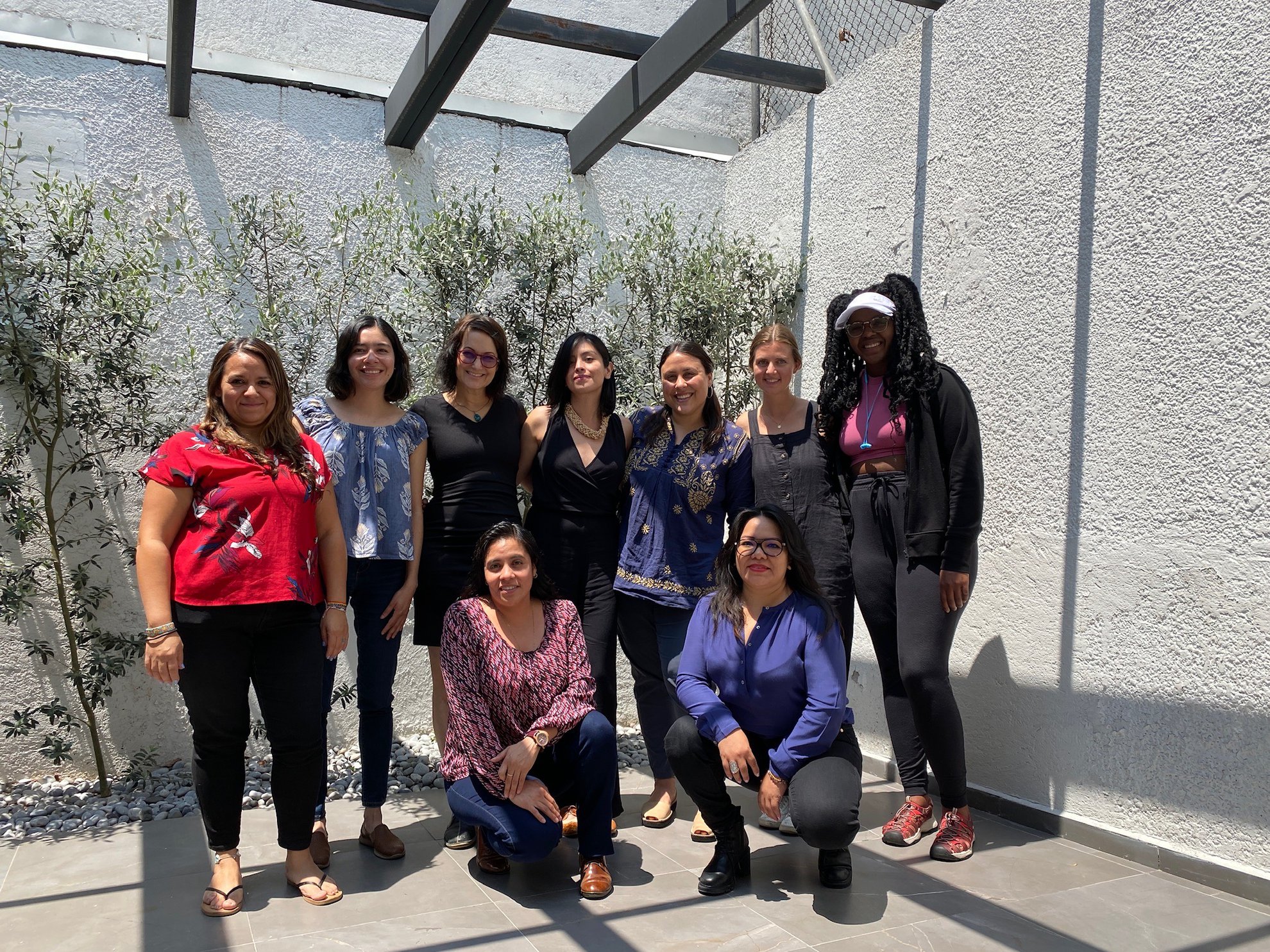
Las Cañadas Bosque de Niebla (Huatusco, Veracruz)
Las Cañadas is an agro-ecological cooperative that hosts courses and apprentice programs to enable community members to learn about and adopt sustainable and regenerative agriculture practices. Since 1994, Las Cañadas has conserved 260 hectares of cloud forest — one of the most biodiverse and threatened ecosystems in the world — and implemented a range of agroecological food systems and ecotechnologies to support cooperative members to live sustainably on the land.
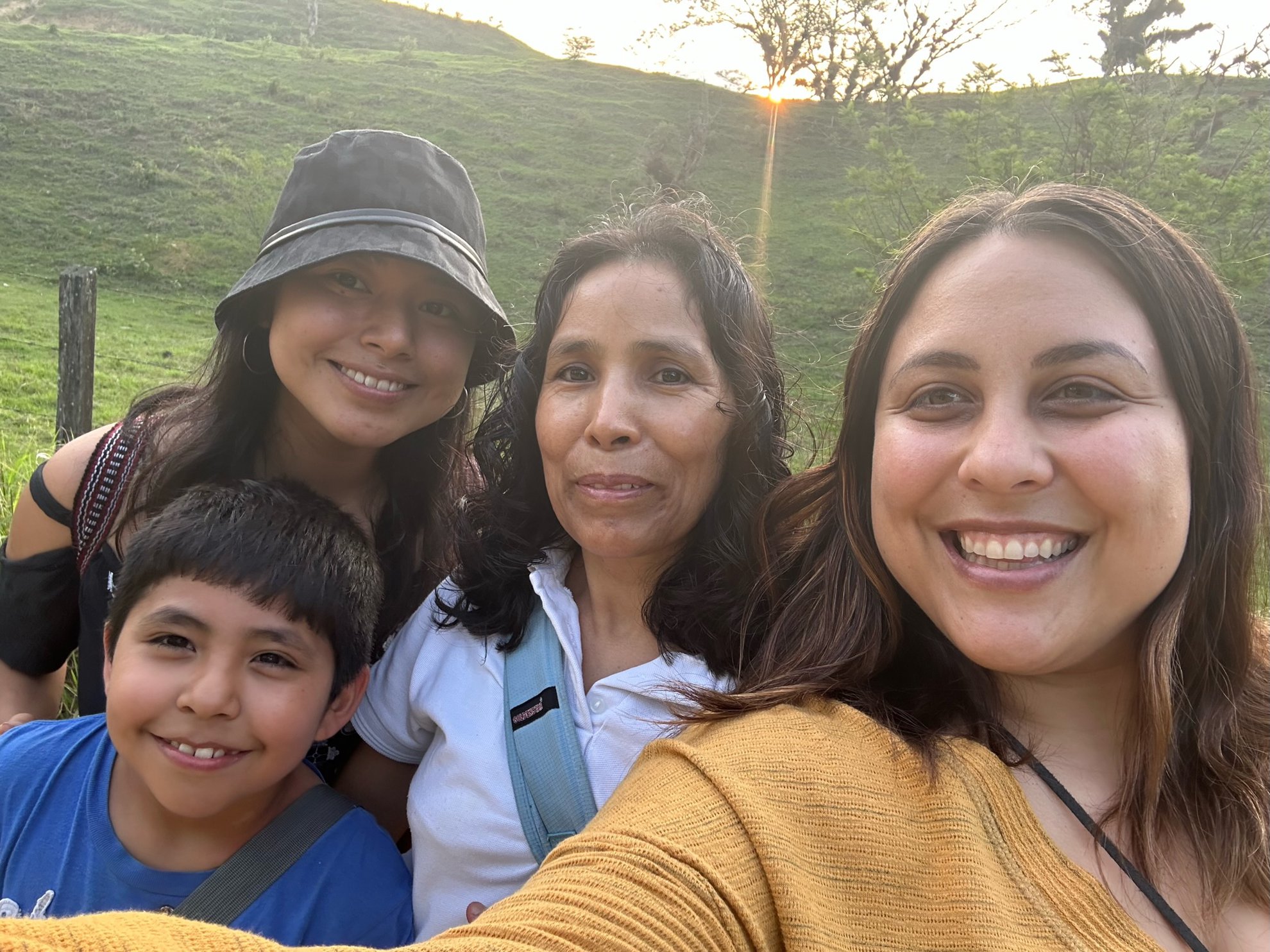
Mujeres de la Tierra, Mujeres de la Periferia (Milpa Alta, Mexico City)
Mujeres de la Tierra, Mujeres de la Periferia is a collective of Indigenous women working to defend the Earth and eradicate violence against women through economic autonomy, networks of support, and knowledge-sharing. The members of Mujeres de la Tierra steward and care for the land by embracing traditional agricultural practices while revitalizing and promoting Indigenous foodways based on blue corn, cactus, beans, and squash.
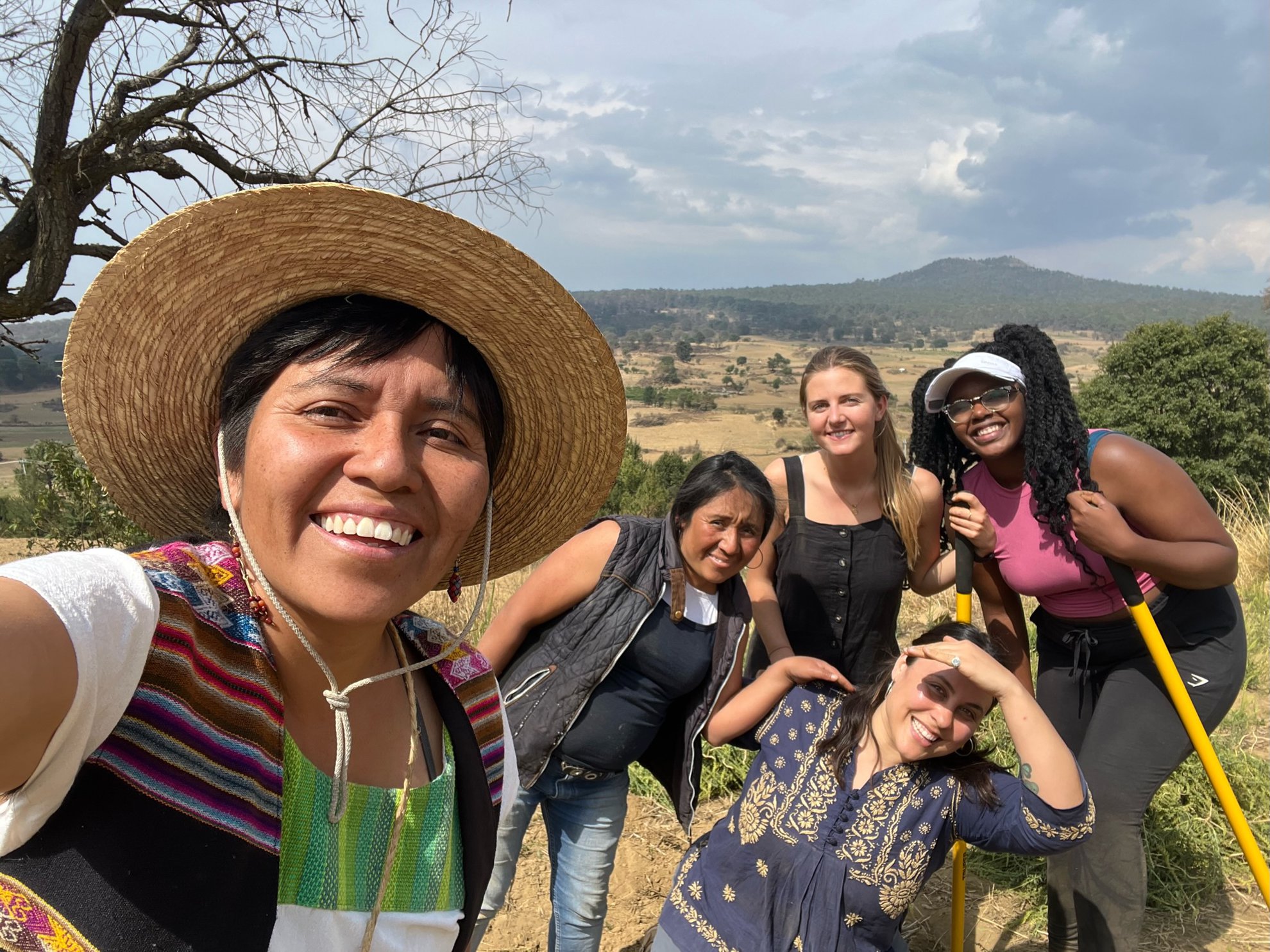
Afrochingonas (Mexico City)
Afrochingonas is an interdisciplinary and anti-racist research, communication, and creative project that was born during the early days of the COVID-19 pandemic as a space for its three founders to reflect alongside one another; discuss strategies for resisting racism, patriarchy, and capitalism; and share about their experiences as Black women in Mexico City. Through a storytelling podcast, workshops, and direct advocacy work, Afrochingonas is generating knowledge and building the world they want to inhabit through what they call “joyful rebellion.”

Unión de Pueblos de Morelos (Jiutepec, Morelos)
Unión de Pueblos de Morelos (UPM) is a social and solidarity-building economic initiative in the state of Morelos. Members of UMP organize with producers from various rural and farming communities to help them improve crop production through agroecology, achieve food sovereignty, and boost their local economies — all while prioritizing the participation of women farmers and producers in order to increase their economic empowerment. Through their initiative, Campo-Ciudad Bazar, UPM has created a mutually beneficial network through which consumers in the city of Cuernavaca and its surrounding areas are able to buy fresh, local products made or grown by rural communities.
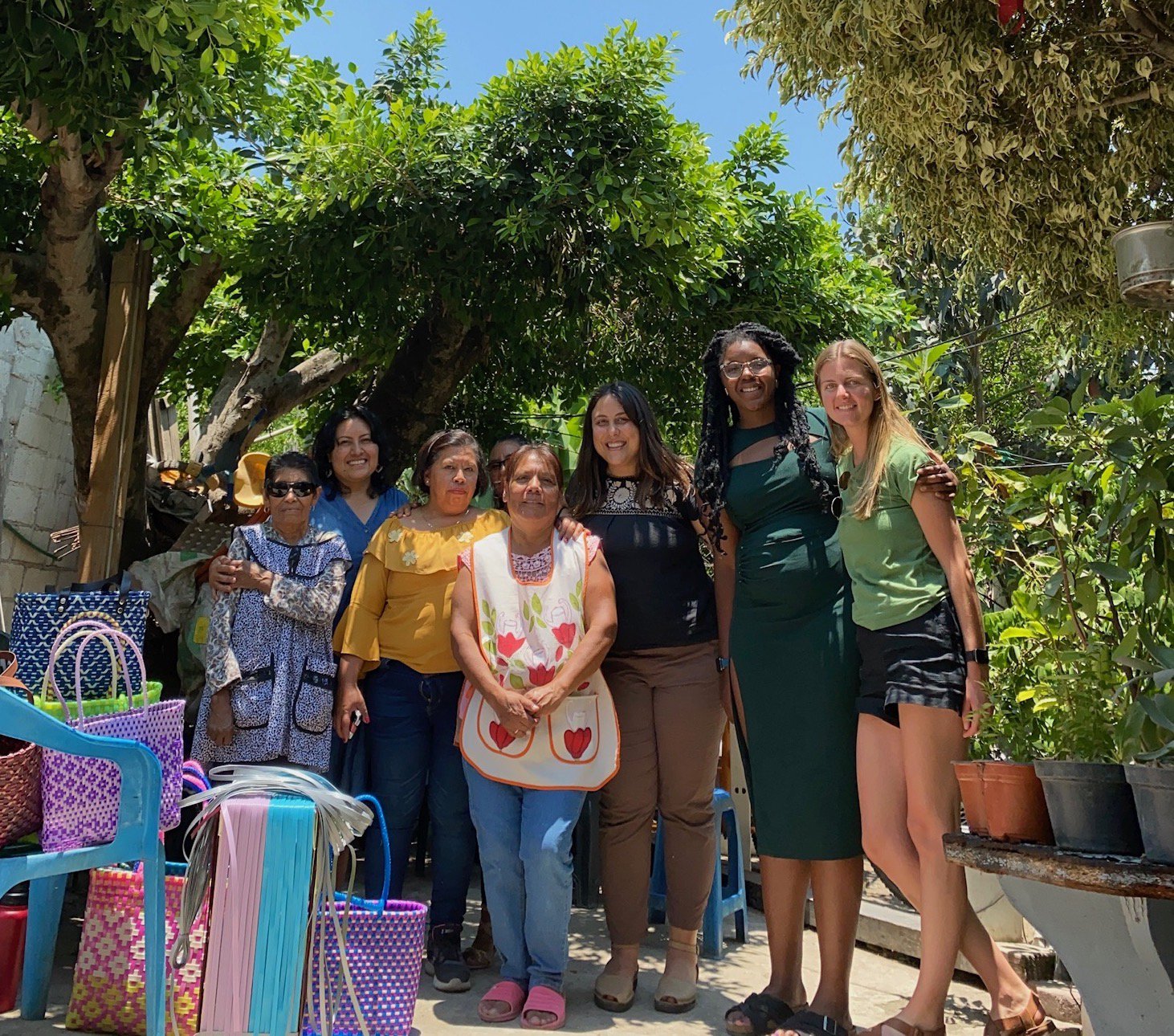
Casa Tecmilco (Amatlán de Quetzalcóatl)
Casa Tecmilco is a self-managed community center and gathering space dedicated to the transformation of Mexico. They host educational workshops to help community members develop skills in grassroots organizing and resistance, as well as visual and performance arts and cultural events. Casa Tecmilco practices sustainable building and maintenance techniques in the construction and upkeep of the property, which includes a traditional cornfield, a syntropic garden, dry toilets, a sustainable treatment plant, compost, and natural building materials.
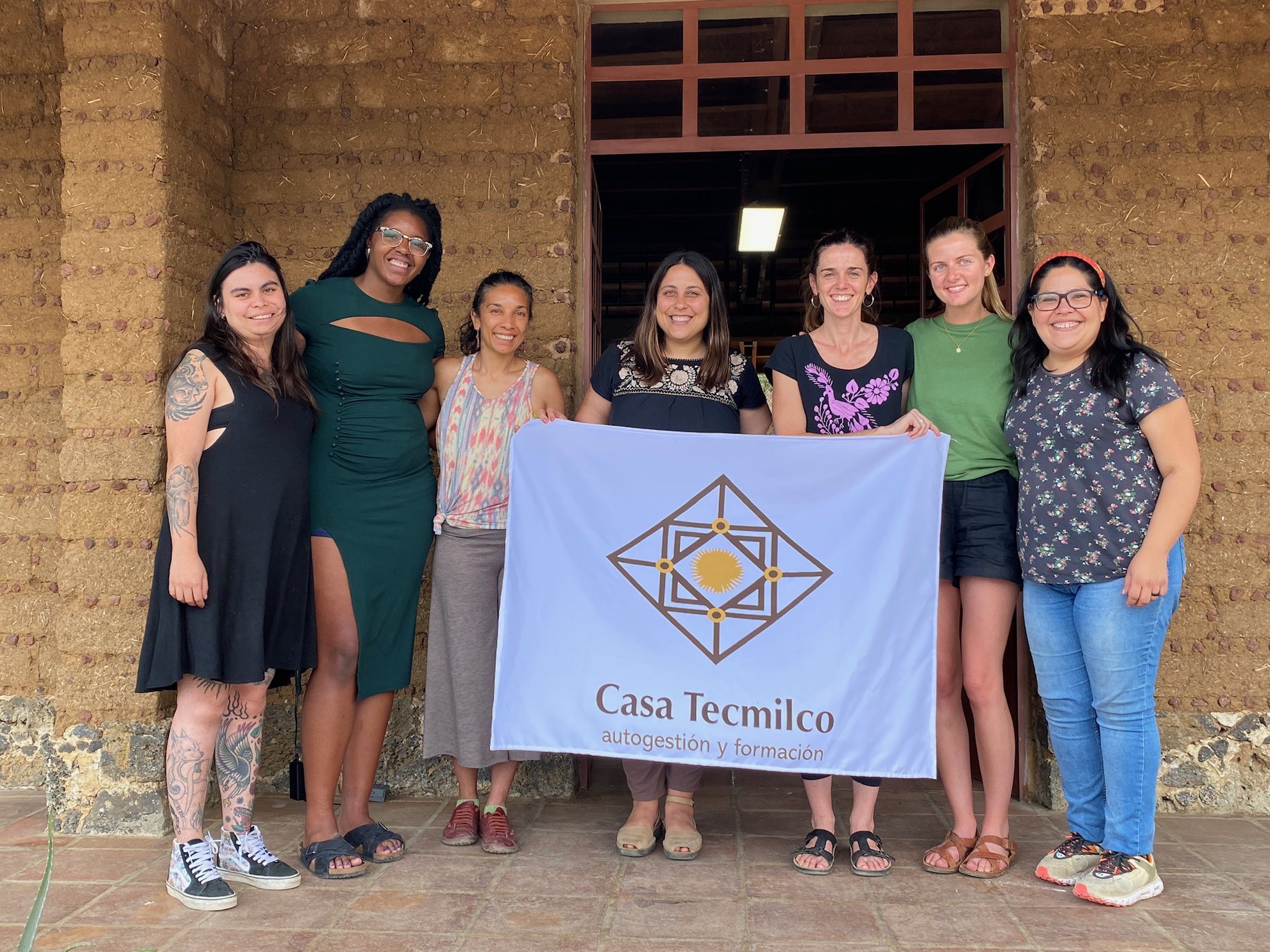
Organización de Mujeres Ayuujk Poj Kaa (Santa María Tlahuitoltepec)
Poj Kaa works with groups of individuals from the Indigenous communities of the Sierra Mixe in Oaxaca to promote traditional agriculture, protect biodiversity, and steward healthy ecosystems. The organization offers training and technical assistance in the areas of gender equality, biodiversity studies, linguistics, and the implementation of agroecological projects, focusing primarily on supporting women due to their relative economic, political, and social vulnerability.
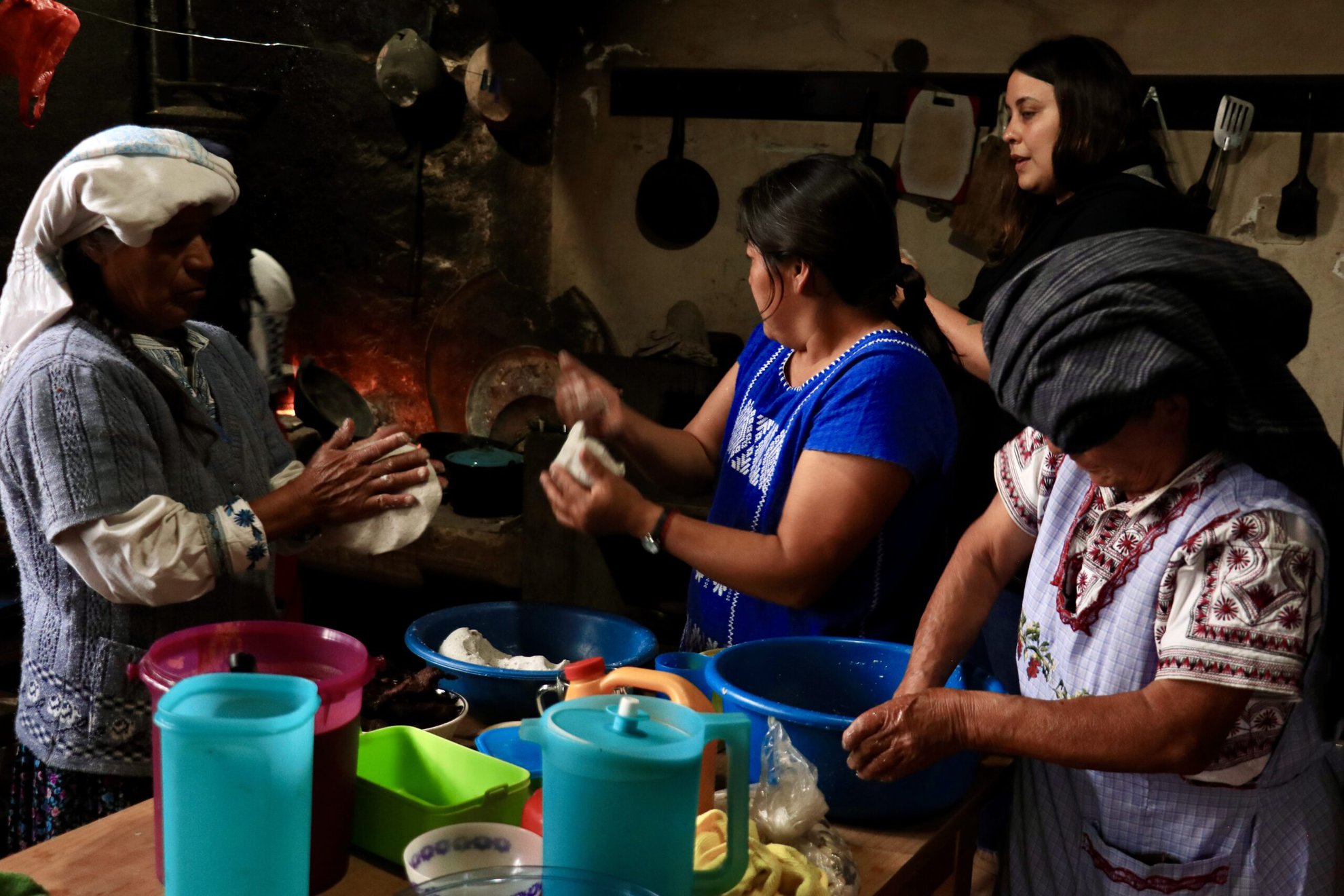
We are so grateful to have had the opportunity to meet and collaborate with so many powerful, wise, resilient women leaders during our trip to Mexico. We have witnessed the life-giving solutions they are cultivating in their communities, and are fortified in our commitment to ground ourselves in the power of our global alliance.
It was an honor to be among powerful women leaders supporting each other’s work, healing, and wellbeing, to ensure that this critical work can continue to grow and flourish.
Head to our homepage to sign up for our newsletter to stay updated on our upcoming Regenerative Agriculture & Health Accelerators in Mexico and the U.S. You can also follow us on Instagram to see more in-depth highlights of each of the partners that we'll be sharing throughout the summer.
